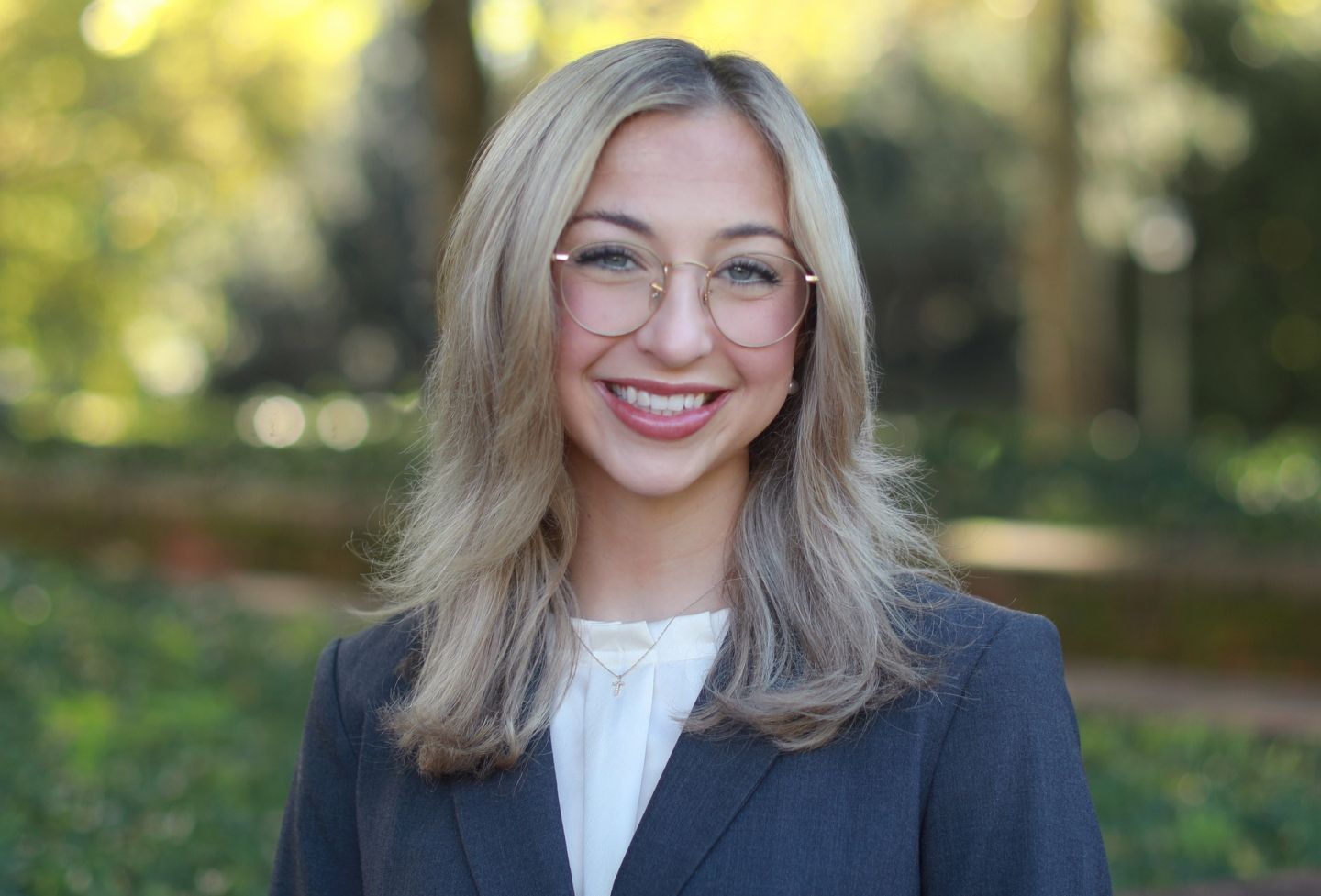Third-year students Sean Gray and Aquila Maliyekkal won the 95th William Minor Lile Moot Court competition at the University of Virginia School of Law on Thursday.
The appellees bested fellow classmates Hunter Heck and Audrey Payne, the appellants, to take home the Kingdon Moot Court Prize.
In addition, Maliyekkal won the Stephen Pierre Traynor Award for best oralist. All four finalists received the James M. Shoemaker Jr. Moot Court Award.
Presiding over the competition were U.S. appeals court Judges Allison J. Rushing of the Fourth Circuit and Alison J. Nathan of the Second Circuit, and U.S. Judge Jesse M. Furman of the Southern District of New York.
This year’s scenario was based on two questions arising from a copyright infringement lawsuit over an anti-cyberattack computer program the company later resold. The first question focused on who owned the copyright. The second question focused on whether the three-year statute of limitations for civil infringement claims precluded relief.
Held annually, the competition starts with a field of about 50 individual competitors, who write briefs and argue their positions in mock federal or state appellate cases created by other students.
In preparation for the competition, Gray and Maliyekkal wrote, edited and rewrote briefs, often up to the last minute. For the oral arguments, they conducted dozens of moots with dedicated friends, classmates and colleagues.
“Lile afforded us a unique chance to develop our own writing styles with a series of three briefs — on topics as wide ranging as the Erie doctrine, the Copyright Act, substantive due process, and the Fourth Amendment — over the past year.” Gray said. “We both walked out of the competition much better writers for it.”
Maliyekkal recalled “getting into detailed discussions about whether to leave in the word ‘a’ before a series of items in a list — but that ultimately resulted in a better final brief,” he said.
They became friends on their first day of law school and talked about teaming up for Lile in their first semester. In fact, both made the Extramural Moot Court Team and were interested in appellate advocacy.
Gray said juggling other commitments — he is a member of the Appellate Litigation Clinic, and Maliyekkal is president of the Federalist Society — meant having one teammate step up for the other when the workload became too heavy. But, he added, “We remembered to have fun.”
“Above all, it’s a great chance to work closely with your friend on fascinating legal questions,” Gray said. “No matter if we were trying to find the best turn of phrase in the brief, nail down the opening lines for our oral argument or anything else, we kept it light. That was central to our process.”
Maliyekkal said believing in each other was a key factor in their success, and he called Gray “incredibly bright and one of the most gifted writers I know.”
“We knew that to achieve our best, we would have to be unsparing in our feedback to each other, defer to the other’s strengths and pick up the slack when necessary,” he said. “That wouldn’t have been possible without the foundation of friendship we already had, and the trust that came with it.”
After graduation, Gray will clerk for U.S. Judge Mary McElroy for the District of Rhode Island. Maliyekkal will work at Gibson, Dunn & Crutcher in Washington, D.C.
In addition to the Lile Moot Court competition, UVA Law students also compete in other appellate moot court and trial advocacy contests nationwide.
Founded in 1819, the University of Virginia School of Law is the second-oldest continuously operating law school in the nation. Consistently ranked among the top law schools, Virginia is a world-renowned training ground for distinguished lawyers and public servants, instilling in them a commitment to leadership, integrity and community service.


